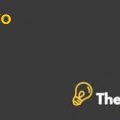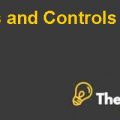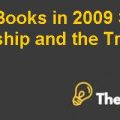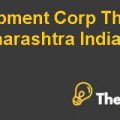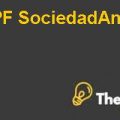Analysis:
The analysis is about the proposed acquisition of the Kinder Morgan Incorporation that is operating under the energy and power industry. It owns many gas and oil pipelines that generate revenue for the company. The company is going for the buyout and the analysis is based on the right price of the company through free cash flow and EBITDA market multiple valuation model. The detailed analysis is given below.
Is Richard Kinder buying or selling?
Rickard Kinder is doing both the things, firstly, he is going to sell its holding on the contracted share price (under consideration) and then, he will purchase a number of shares after the sale transaction. The net effect is buying because his current holding is 17%, and after the buyout his holding will be 30.73%. Moreover, net purchasing will take place with 13.73%. Richard has to pay cash for the percentage as he is about to buy for the shares of Kinder Morgan Incorporation.
He is facilitating the buyout through his involvement with the investment banks and venture capitals along with that he is the major shareholder of Kinder Morgan Inc., therefore he is also playing his role as a member of BOD in the company. Due to his nature of purchasing the shares, he is willing that the buyout must take place at the lowest possible price, but other shareholders are creating a hurdle for it. His buying nature creates some conflicts of interests that are defined in the next session of this part of the report.
Is there conflict of interests?
The conflict of interest is to arise in this case because Kinder wants to have a percentage of profitability with it by not sharing any ratio with Morgan, who currently takes a share of 50% of the profitability due to profitable performance of the company.
Kinder Morgan Incorporation has a history of profitability and it is going for an expansion plan, therefore there are high chances that the profits are about to increase in the future period. Currently, he has to share the profits with Morgan but after buyout, he can have higher profit shares as compared to the current profits.
Kinder is interested to hold a number of shares in the company in which he has significant holding and he the current major shareholder and after the buyout he will remain the major shareholder of the company. Kinder is interested to involve investment banks and equity holders and then it will sell his shares in the market. Moreover, the power will remain in his hands over Kinder Morgan Inc.
Kinder is willing to sell the company because he is under consideration that the stock price has declined and the shareholder will be willing to sell the shares at an attractive price. Therefore, he wants to gain a personal benefit by buying other a number of shares at a lower price, because he is under consideration that after the start of the new proposed investment, the company’s value will increase in the future.
He is trying his best that the sale takes place at a minimum price which is acceptable to the shareholders to save his own money in the current period and earn higher money in the future years. The conflict will arise, therefore he is hurrying to finalize the deal as soon as it is possible and at the lowest price that is acceptable to other shareholders.
If you were a member of the BOD (Board of Directors) do you think that it is time to sell KMI?
The current time is not right to sell the shares as at the current period, shares declining, therefore majority of the shareholders can accept the price with a lower premium. The right time is after some time when the profits from the expansion flow to the entity and a dramatically growth is achieved.
Kinder Morgan Incorporation Case Solution
The declining time is mostly the wrong time for buyout when an increase in stock price is expected in the near future. The right time of the buyout is the time when healthy profits are generated by the company from its current and new assets.
The proposal must be rejected in the current time period to secure the interest of the shareholder and ownership as being a member of the BOD. In the first place, the maximization of the wealth of the shareholders must be considered and the future cash inflows must be communicated to its shareholders, after that they should decide because they can take the rational decision for them...........
This is just a sample partial case solution. Please place the order on the website to order your own originally done case solution.



